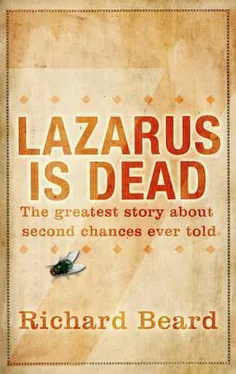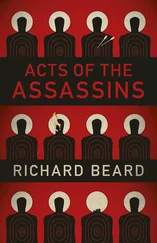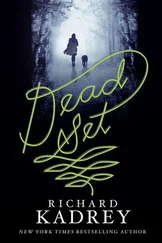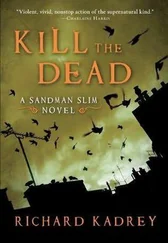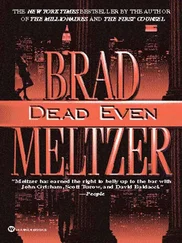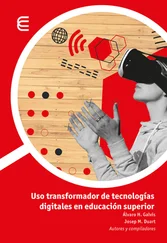He doesn’t think so. The proof is there in what happened to Amos, but the past can’t be changed. Unlike the future, which can be whatever he is determined to make of it.
2
Yanav the Healer travels with a dog called Ezekiel and a brown, one-eyed donkey. He is welcomed in Bethany like news from the desert or the arrival of cut-price eggs. He is an event. The idle gawp at the donkey, at the brass rings in its ears and the clatter strapped to the yellow leather tent on its back.
The healer is a small bearded man with no visible neck. His clothes are good quality but travel-stained, and he has a wary look as if there’s danger in fully opening his eyes. His face is often turned at an angle to his body, but the eye furthest away is the one to watch. The nearer eye sees, but the one at a distance does the thinking.
We can’t know this for sure. We do, however, know what a healer of the time, like Yanav, would have been carrying in the panniers and flagons jumbled across the back of his donkey.
Foliage from a willow tree, and the dried sap of opium poppies. He has a jar of milk deliberately exposed to the sun. Olive oil, oil squeezed from fish livers, salt, and a box of maggots kept separate from the leeches which travel on the other side of the donkey, next to a bag of locusts. A flask of honey, a pouch of earth scooped from the centre of a termites’ nest, sharp thorns, chalk, flat stones, and a stoppered vial of ‘Greek potion’ which is his own urine mixed with dill.
He also carries astrological charts and a sheath of peacock feathers, but these are just for show.
Mary notes the arrival of the healer and the next day she leaves the village before dawn. She is Lazarus’s sister and has similar notions about heroism, though he and Martha have never bothered to notice. Martha is the oldest and Lazarus is a man. They underestimate her, but with the help of Jesus she alone can save her ailing brother.
She believes this to be true, and in her mind it is already so. Jesus will heal Lazarus if Mary of Bethany demonstrates sufficient faith.
She also believes, quite sincerely, that Martha will feel no anxiety about where her sister is or when she’s coming back. Mary believes she will come to no harm on the Bethany road, nor after that as a young, attractive woman alone in the empty wastes between Jerusalem and the lake in Galilee. Her faith will keep her safe, and with the aid of kindly strangers she’ll arrive in Cana by tomorrow at dusk.
Mary prays for the sick at the Bethesda pool, but passes them by. She prays for the beggars who jostle her in the clamour of Jerusalem. She will not be deterred, because she recognises the blisters in her brother’s mouth. She knows smallpox. The consumptive cough she has also heard before, and tended to the dying with similar malarial fevers. If she does nothing, Lazarus will die.
At the Damascus Gate a military checkpoint slows her progress, but she joins the queue to leave the city. Waiting, too, may be part of the celestial plan.
The soldiers block her path. The northern road is dangerous for an unaccompanied woman. Besides, she has no business outside the city. She is carrying nothing she can sell in the desert.
‘I wouldn’t say that,’ but before the soldiers can start she turns and doubles back, believing god must mean her to leave the city by another route.
By the time she reaches Herod’s Gate, Cassius is already there.
‘You are Mary, the sister of Lazarus.’
She glances over her shoulder, then briefly at his face. His blue eyes mean nothing to her.
‘How is your brother? I hear he’s not been well.’
‘He is about to make a recovery, thank you.’
‘It’s not catching, then, whatever he has?’
‘Let me through, please. I have a long distance to travel.’
‘To the Galilee, I expect. You’ll have heard the stories about Jesus and his two miracles.’
Mary is better looking than Cassius expected, and she blushes nicely, though young women should learn not to clench their fists. ‘Do you believe either of these miracles are true?’
She does. Cassius sees this straight away, because the Jesus believers have no talent for deception, as if concealing their belief were as bad as denying it. Her shoulders dip, and she picks up her skirts, as if she expects to have to run.
‘I wouldn’t wish that on my worst enemy,’ Cassius says consolingly. ‘Let alone my brother’s friend. Jesus of Nazareth sent by god. Imagine the responsibility.’
Mary raises the bright and defiant eyes of a believer, and Cassius briefly thinks that she too may be ill. She believes in stories that grow more far-fetched at every step from Cana, and to a speculatore credulity looks like an illness. It needs stamping out.
‘Now go back home. You will not be permitted to leave for the Galilee. Every soldier on every gate has orders that you and your sister belong with Lazarus in Bethany.’
1
Jesus is not the only healer in Palestine at this time. Yanav has travelled extensively, and he has a reputation.
Lazarus welcomes him into the downstairs room, sits his back against the wall. Then he clutches his stomach, apologises and staggers to the latrine behind the house.
Yanav has seen it all before. He accepts some modest hospitality. A glass of sweet tea, one of Martha’s honey cakes, and yes very kind perhaps just one more half of a honey cake. Thank you.
Martha bustles about, checking the healer has everything he wants, then in the absence of Lazarus she asks him directly how much he charges. Her hand leaps to her throat, then settles on her racing heart. For that amount she’d expect him to work miracles.
Lazarus returns, misses the entrance and smashes his eye socket against the door frame. Glaucoma. As well as pain in and around the eyeball, he is losing his peripheral vision. He crouches down, holding his head, cursing his eyes, hitting out at the door for being so narrow. Feels sick, stands up. He’s too hot or too cold, and hasn’t eaten for days.
‘I’ll need most of my fee in advance. There may be additional expenses. Herbs, and so on.’
‘We have the money,’ Martha says. ‘If you can make him well.’
Lazarus has a coughing fit which leaves him panting and exhausted. He ends up on one knee on the floor, but refuses to lie down.
Yanav leads him to the bench, helps him to sit upright. Whatever he was expecting, Lazarus is worse, especially as Yanav’s favourite healings involve diseases that no one can see. He likes sick people with active imaginations who thrive on close attention. They may well believe in peacock feathers and astrology, in which case Yanav is confident that he can help.
With Lazarus there is the rash, the fever and the pinkness in the whites of the eyes. Yanav examines the welted tongue, the pustules in the mouth. He sucks his teeth. Lazarus is suffering from symptoms that Yanav has encountered before, many times, though never all at once in the same body.
There is also a distinct, unpleasant smell, either from Lazarus or somewhere close. Yanav has never smelled anything like it. Courage, he tells himself, this is the friend of Jesus whom Jesus the upstart healer, for reasons of cowardice and inexperience, has neglected to attempt to heal.
Yanav rests his hands on Lazarus’s shoulders. He squeezes, feeling for the density of flesh and bone, for the will of the man to survive. He looks hard into Lazarus’s inflamed eyes.
‘As I thought.’
Lazarus is tough, wiry, the upcountry type that lasts for ever. He is also rich and unmarried, so his only concern is his health.
Yanav’s reputation depends on successful predictions. If he examines a man and predicts he will die, and he dies, then his reputation remains intact. Better, of course, to see in advance that a dying man will live.
Читать дальше
